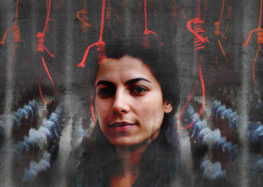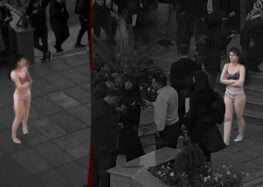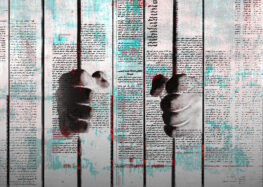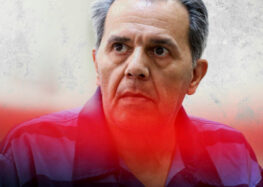Farzad Kamangar’s Lawyer: There Was No Cause for Execution
Farzad Kamangar was one of the five people executed at Tehran’s Evin prison last Sunday. In an interview with the International Campaign for Human Rights in Iran, his lawyer, Khalil Bahramian emphasized that his client was innocent. “The gentlemen do not have a shred of evidence. If they claim they do, they should bring it forward,” he said. “We can go to a group of impartial and honest Iranian judges who have had experience judging cases in courts. If they can present the smallest reasoning against Farzad, I would be willing to give up law forever and to endure whatever punishment,” he added.
Bahramian posed a request to Iran’s Supreme Leader, saying: “I only ask Ayatollah Khamenei as the Supreme Leader of Iran to pay attention and not allow opportunists and looters to create crisis behind the scenes and to make a mockery of the Iranian Judiciary. Unfortunately, the Judiciary is creating many crises here and the judges who are presiding are not very effective. They are not well-informed, and it is really important that a judge with a limited view does not make decisions.”
He said that intelligence officers had reassured him that his client was no longer in danger of execution. “Farzad and I were sitting in prison with a Ministry of Intelligence operative [who is a specialist] in intelligence and security. He told us explicitly that ‘the danger of an execution is moot.'”
Regarding his client’s family’s reaction to news of the execution he said: “They reacted to news of the execution the same way I did. We are all in shock. I still can’t believe it. I keep rubbing my eyes, thinking that I might be dreaming, hoping that when I wake up I will realize that this was a horrible dream and this news was just an illusion in my dream. The family and all of us are really shocked.”
Criticizing the legal process that led to his client’s execution, Kamangar’s lawyer told the Campaign: “In democratic laws, the first condition is respecting an individual’s rights. Individuals are evaluated within the society and their roles in the society are important. But in religious and common laws this doesn’t happen and the gentlemen have an open hand for interpreting issues and penal laws. In Islam people are innocent until proven guilty. But in the present courts, especially in Revolutionary Courts, people are presumed to be guilty and they must prove that they aren’t. This is against human nature and even against the sharia law and human criteria when sentences such as executions are issued and carried out, destroying our youth who are the country’s biggest assets.”
Regarding a change in review procedures of political prisoner executions he told the Campaign that previously appeals court rulings were sent to the Supreme Court. But the General Council of the Supreme Court has issued a directive announcing that the appeals courts now have final ruling. According to Khalil Bahramian, this is illegal: “This is against the law… The General Council cannot violate the law… According to the explicit word of law, the General Council does not have a legal position [to issue such a directive to change the procedures]. The very interference of this Council where there are expressed laws is against the law and its decision cannot be carried out.”
Describing the role of this council within the Judiciary he told the Campaign: “The General Council of the Supreme Court used to be a very powerful group of judges who were knowledgeable, research-oriented. practiced, provident, and patriotic. Currently, we have a law which stipulates that a case with a death sentence or life sentence must be appealed to the Supreme Court. Against the letter of the law, the General Council expresses a different opinion. The General Council is not authorized to have any opinions because it is not authorized to refute or eliminate decisions made by the legislature. Right now such things are happening as they have been for years. I hope the Iranian Judiciary will one day respect the laws and that competent judges are appointed to the Judiciary, [judges] who will be able to protect the country’s best interests and to respect people’s rights.”






